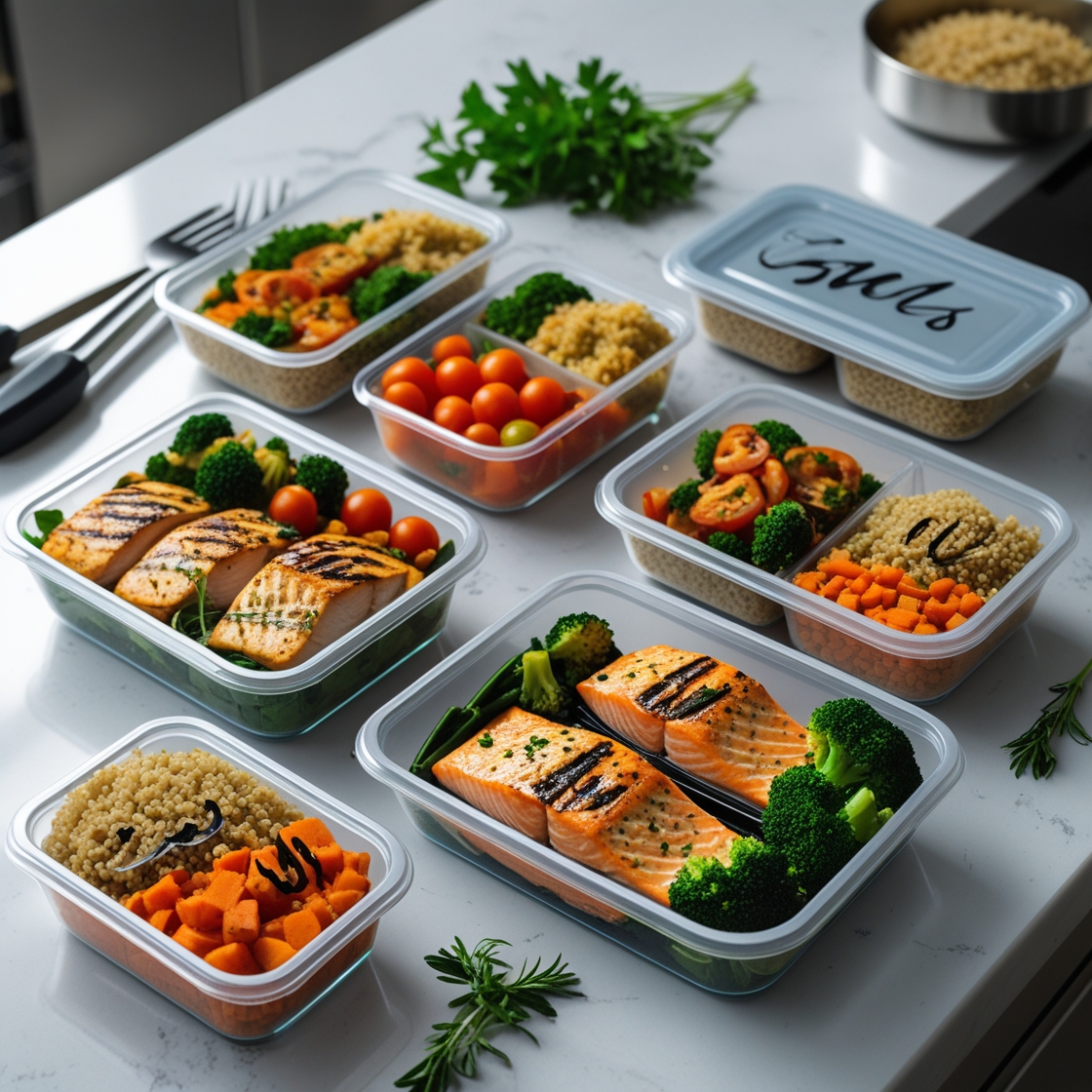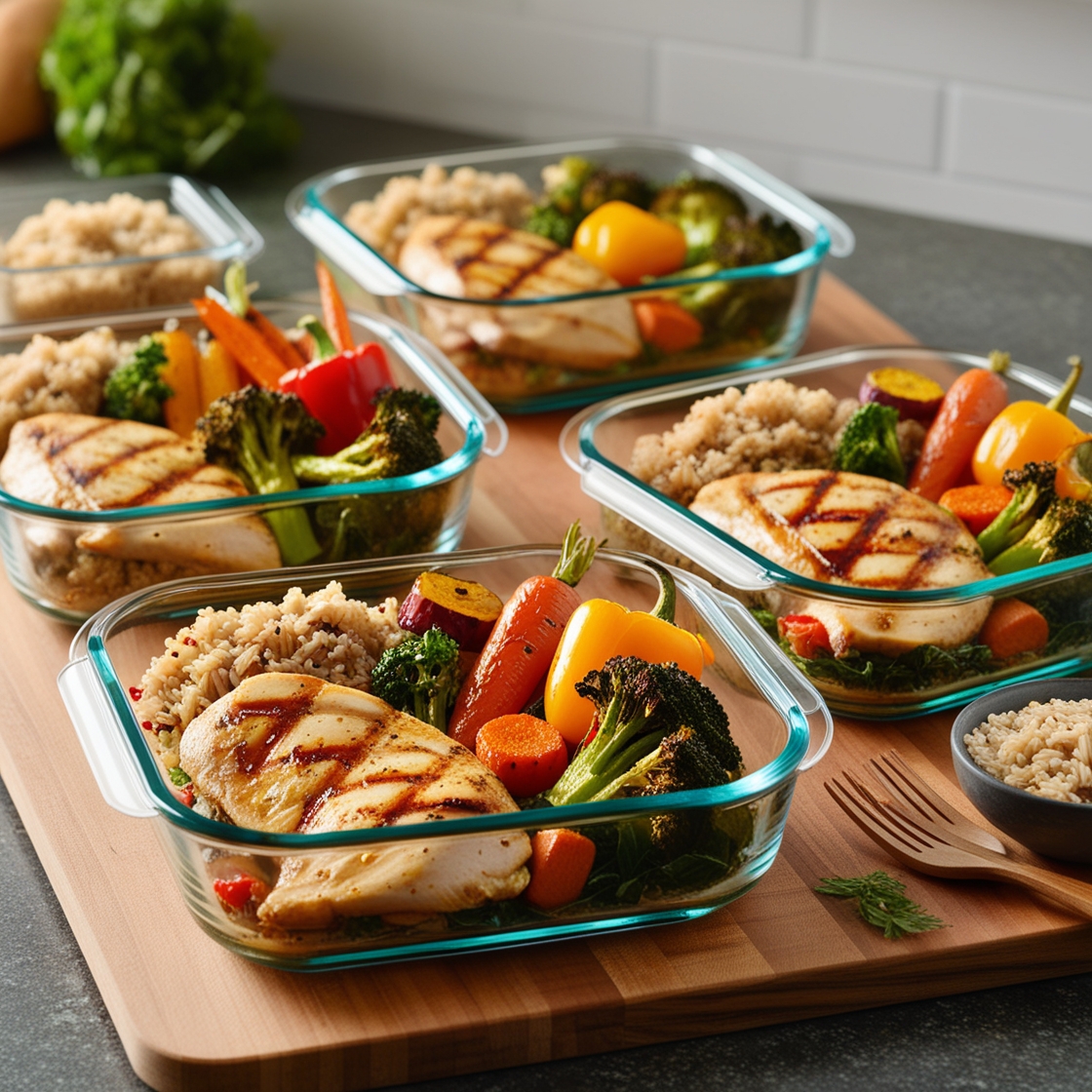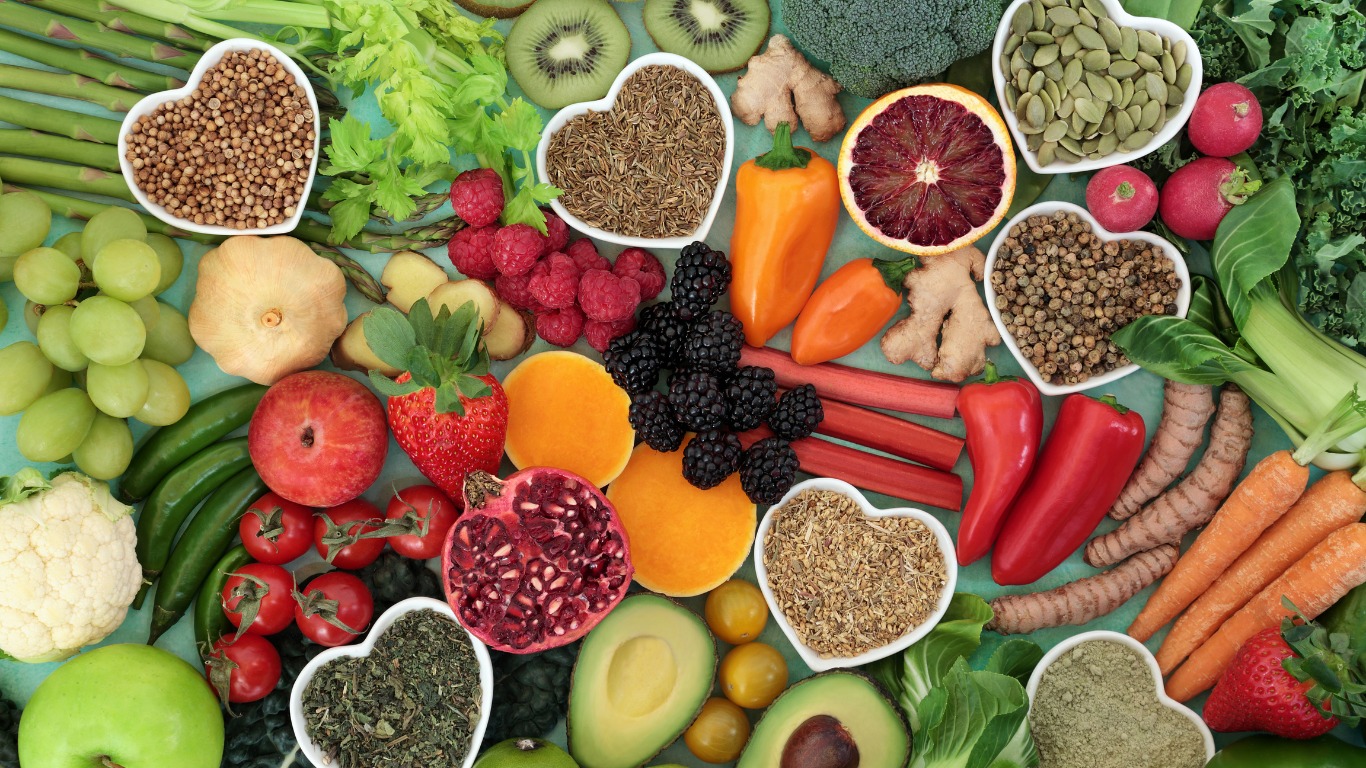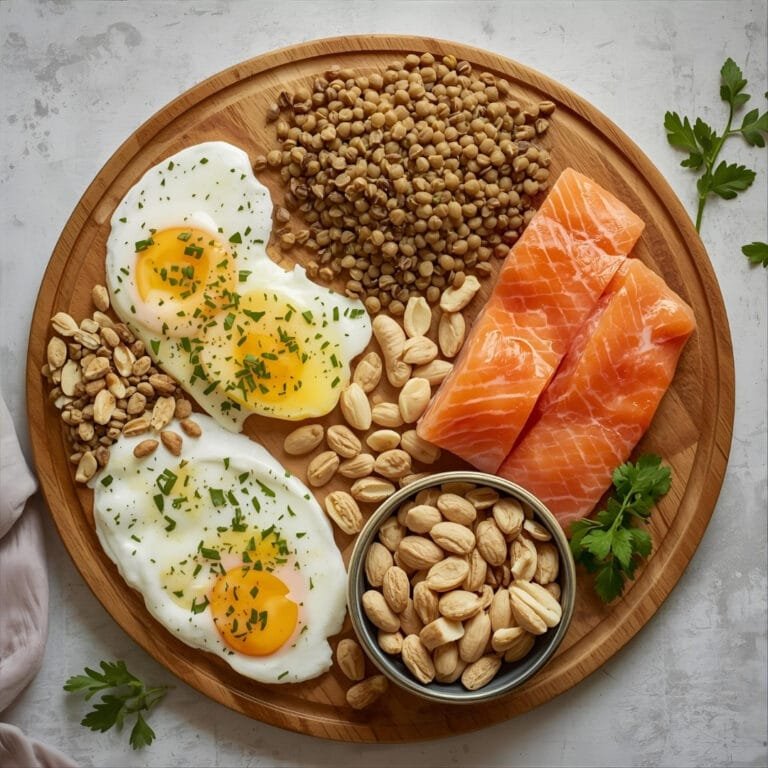Disclosure:
Thank you for reading this post, don't forget to subscribe!
Some of the links on this website are affiliate links. This means that if you click on the link and make a purchase, we may receive a small commission at no extra cost to you. Your support helps us keep the site running.Learn more on my Privacy Policy and Affiliate Disclosure page. Thank you for your support!
Achieving muscle growth requires a harmonious blend of consistent training, adequate rest, and, crucially, proper nutrition. One of the most effective strategies to ensure you’re fueling your body correctly is meal prepping. By planning and preparing your meals in advance, you can control your nutrient intake, save time, and stay committed to your muscle-building goals.
The Importance of Meal Prep in Muscle Gain
Meal prepping involves preparing meals ahead of time, ensuring that you have nutritious options readily available. This practice is particularly beneficial for those aiming to gain muscle, as it allows for precise control over calorie and macronutrient intake. Consuming the right balance of proteins, carbohydrates, and fats is essential for muscle repair and growth.
READ NEXT:
Benefits of Meal Prepping:
- Consistency: Having meals prepared reduces the temptation to opt for less nutritious, convenient options.
- Portion Control: Prepping meals ensures you’re consuming appropriate portions, aligning with your dietary goals.
- Time Efficiency: Investing a few hours weekly in meal prep saves time during busy weekdays.
- Cost-Effective: Buying ingredients in bulk and preparing meals at home can be more economical than dining out.
Steps to Effective Meal Prepping for Muscle Gain

1.Determine Your Caloric and Macronutrient Needs
Understanding your body’s energy requirements is the foundation of any nutrition plan. Factors such as age, weight, activity level, and specific muscle-building goals influence these needs. Utilizing online calculators or consulting with a nutritionist can provide personalized insights.
- Proteins: Essential for muscle repair and growth. Aim for approximately 1.6 to 2.2 grams of protein per kilogram of body weight daily.
- Carbohydrates: Provide energy for workouts and aid in recovery. Complex carbohydrates like brown rice, quinoa, and sweet potatoes are excellent choices.
- Fats: Support hormone production and overall health. Incorporate healthy fats from sources like avocados, nuts, and olive oil.
2.Plan a Balanced Menu
Design meals that align with your nutritional requirements and taste preferences. Variety not only prevents dietary boredom but also ensures a broad spectrum of nutrients.
- Breakfast Options: High-protein meals such as scrambled eggs with vegetables or Greek yogurt with berries and nuts.Lunch and Dinner: Grilled chicken or tofu with roasted vegetables and a serving of complex
- Lunch and Dinner: Grilled chicken or tofu with roasted vegetables and a serving of complex carbohydrates.
- Snacks: Protein shakes, mixed nuts, or hummus with carrot sticks.
3.Grocery Shopping and Preparation
Create a shopping list based on your planned menu. Stick to whole, minimally processed foods to maximize nutritional value.
- Bulk Cooking: Prepare large quantities of staples like grilled chicken, quinoa, and steamed vegetables.
- Storage: Use airtight containers to portion out meals, ensuring freshness throughout the week.us.myprotein.com
4.Incorporate Variety and Flexibility
While consistency is key, it’s also important to enjoy your meals. Experiment with different spices, herbs, and cooking methods to keep your palate engaged. Additionally, allow flexibility for social events or cravings to maintain a balanced approach.
Sample Meal Plan for Muscle Gain
Note: Adjust portion sizes based on individual caloric needs.
Day 1:
- Breakfast: Overnight oats made with rolled oats, chia seeds, almond milk, topped with mixed berries and a scoop of protein powder.
- Lunch: Grilled salmon with quinoa and steamed broccoli.
- Dinner: Stir-fried chicken with brown rice and assorted vegetables.
- Snacks: Greek yogurt with honey; a handful of almonds.
Day 2:
- Breakfast: Spinach and mushroom omelet with whole-grain toast.
- Lunch: Turkey and avocado wrap with a side of mixed greens.
- Dinner: Baked tofu with sweet potatoes and roasted Brussels sprouts.
- Snacks: Cottage cheese with pineapple; carrot sticks with hummus.
Overcoming Common Meal Prep Challenges
- Time Constraints: Dedicate specific time slots for meal prepping, such as Sunday afternoons. Utilize efficient cooking methods like baking or using a slow cooker.
- Budget Limitations: Focus on cost-effective protein sources like legumes and eggs. Buying seasonal produce can also reduce costs.
- Flavor Fatigue: Rotate recipes bi-weekly and incorporate seasonal ingredients to keep meals exciting.
Mindset: The Key to Consistency
Adopting a positive mindset is crucial for long-term adherence to meal prepping. Recognize that consistency yields results, and view meal prep as an investment in your health and fitness journey.
Expert Tip: Start with prepping meals for three days a week and gradually increase as you become more comfortable.
Setting Achievable Goals
Utilize the SMART framework to set clear objectives:
- Specific: Define exact outcomes, such as “Prepare lunch and dinner for five days a week.”
- Measurable: Track progress by noting improvements in energy levels or workout performance.
- Achievable: Set realistic goals that align with your lifestyle and commitments.
- Relevant: Ensure your goals support your broader muscle-gaining plan.
- Time-Bound: Establish deadlines, such as “Stick to this meal plan for one month and reassess progress.
Exercise and Nutrition: The Perfect Pair
Meal prepping is only one piece of the puzzle. To maximize muscle gain, pair your nutrition strategy with a structured workout routine. Strength training exercises, combined with proper fueling, lead to muscle growth and recovery.
For effective training strategies, explore this guide on strength-building workouts.
The Role of Rest and Recovery in Nutrition
Proper nutrition plays a significant role in muscle recovery. In addition to consuming protein-rich meals, focus on:
- Hydration: Drink plenty of water to support muscle repair.
- Sleep: Aim for 7-9 hours of rest to allow for optimal recovery.
- Rest Days: Incorporate rest days to prevent overtraining and support long-term progress.
Overcoming Setbacks and Staying Motivated
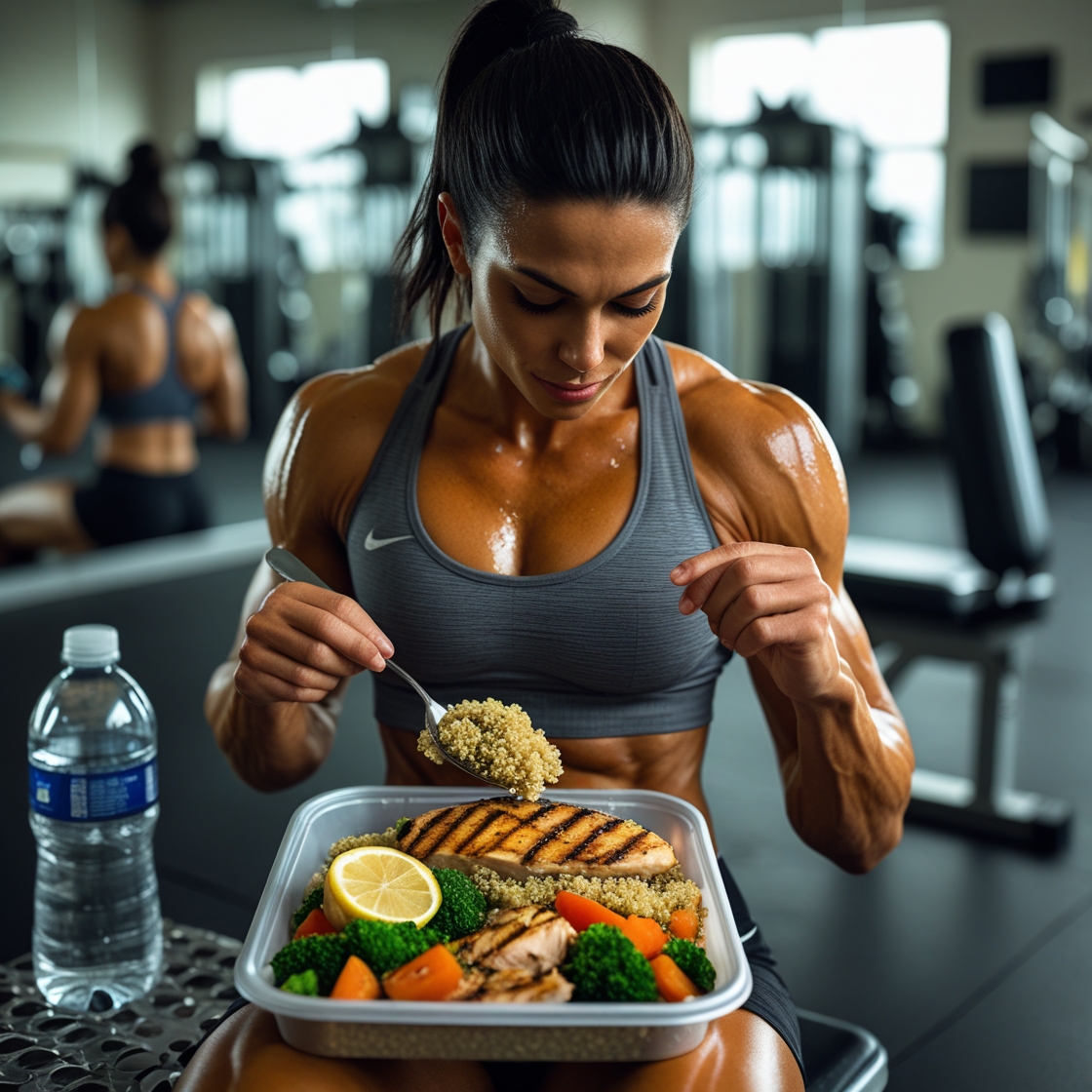
It’s natural to face challenges when adopting new habits. The key is to stay resilient and adjust as needed.
- Missed a meal prep session? Opt for simple, whole-food meals like grilled chicken with veggies instead of fast food.
- Feeling unmotivated? Remind yourself of your goals and the benefits of consistency.
- Struggling with meal variety? Join online communities or browse new recipe ideas for inspiration.
The Power of Accountability
Surrounding yourself with a supportive community can enhance commitment to meal prepping and fitness. Consider:
- Finding a workout partner who shares similar goals.
- Joining online fitness groups for motivation and recipe ideas.
- Tracking your progress in a journal to celebrate small wins.
RECENT POST:
Taking Action: Your Next Steps
- Start Small: Choose 2-3 meals to prep this week.
- Stay Consistent: Stick to your plan and adjust as needed.
- Track Progress: Monitor energy levels, workout performance, and muscle growth.
Conclusion
Meal prepping is a game-changer for anyone serious about building muscle. By planning meals in advance, you take control of your nutrition, improve consistency, and set yourself up for success. Pairing this strategy with effective workouts, proper rest, and a strong mindset will help you achieve long-term fitness goals.
What meal prep tip will you try first? Share your thoughts in the comments and explore Morningscape Mindset Media for more fitness and nutrition insights!
MORE ABOUT:
HEALTH / WELLNESS / FITNESS / NUTRITION
SHARE THIS ARTICLE

